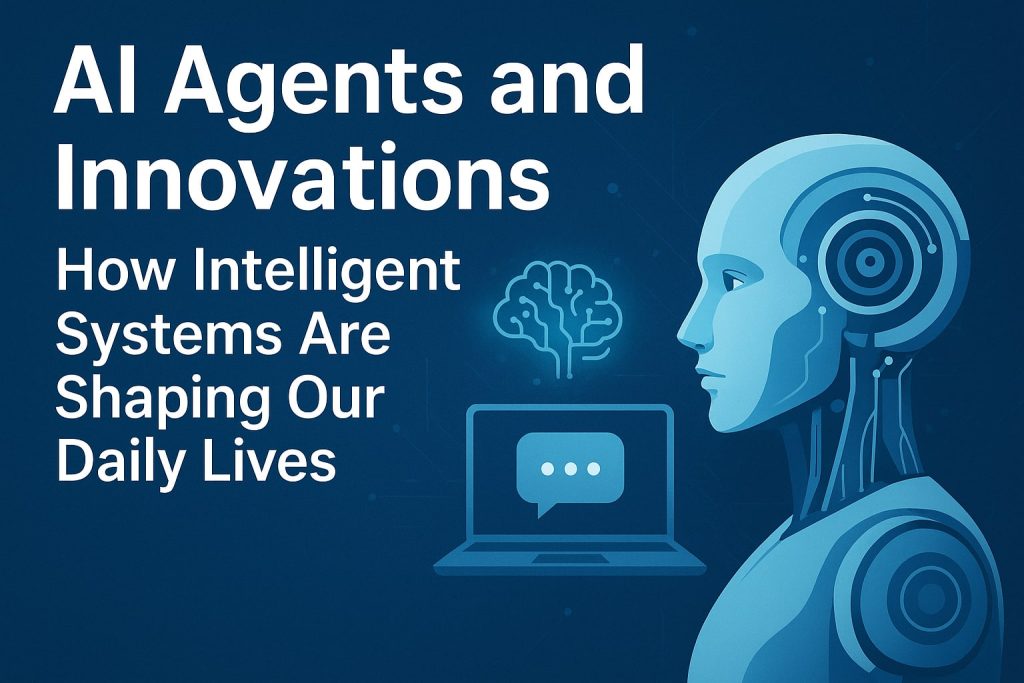Artificial intelligence (AI) is no longer a distant dream—it is rapidly becoming a tangible part of everyday life. Among the most transformative advancements are AI agents, intelligent systems capable of autonomous decision-making, real-time personalization, and performing complex tasks with minimal human intervention. Leading examples, such as GPT-5, have sparked significant attention in tech communities, businesses, and mainstream media, fueling discussions about the future of work, creativity, and personal convenience.
AI agents are essentially smart software programs that can understand, learn, and adapt to tasks in ways previously thought impossible. These systems are now capable of interacting with humans in natural language, analyzing vast amounts of data in seconds, and even making independent decisions based on contextual information. This level of autonomy makes them particularly useful in industries where efficiency, personalization, and speed are critical.
One of the most visible applications of AI agents today is in customer service. Chatbots and virtual assistants powered by AI are increasingly handling routine inquiries and support requests for companies worldwide. Unlike traditional customer service systems, AI agents can respond to queries 24/7, learn from previous interactions, and provide personalized solutions to users. For example, a banking chatbot can analyze your spending habits, alert you about unusual transactions, and suggest ways to save money—all without human intervention. Businesses report that integrating AI-driven customer service not only improves efficiency but also enhances customer satisfaction, as responses become faster and more accurate.
Beyond customer service, AI agents are making waves in content creation. Writers, marketers, and designers are leveraging AI to draft articles, generate social media content, and even compose music. These systems can analyze trending topics, identify relevant keywords, and produce high-quality drafts in minutes. While AI is not replacing human creativity, it significantly accelerates the content production process and opens doors for experimentation. Small businesses and freelance creators, in particular, are benefiting from these tools, as they offer cost-effective ways to maintain consistent and engaging content.
Another key area where AI agents are gaining traction is in personalized digital experiences. From music and video recommendations to shopping suggestions, AI systems continuously analyze user behavior to tailor content in real time. Streaming platforms, e-commerce websites, and even fitness apps now rely on AI agents to deliver experiences that feel intuitive and relevant. Imagine opening a music app and finding that the playlist matches your current mood, or receiving product recommendations based on your lifestyle patterns. This level of personalization not only enhances user engagement but also encourages loyalty and repeat usage.
Healthcare is also seeing early but impactful applications of AI agents. Intelligent systems can assist doctors in diagnosing diseases, analyzing medical images, and predicting patient outcomes. AI agents streamline administrative tasks like appointment scheduling and patient follow-ups, freeing medical staff to focus on critical care. For patients, these systems offer faster access to information, improved communication with healthcare providers, and personalized health recommendations based on real-time data.
The viral nature of discussions around AI agents can be traced to their practical impact on daily life and their potential to redefine industries. Social media platforms, tech blogs, and professional networks are buzzing with examples of AI tools that simplify work, boost creativity, and save time. Many posts go viral because people are eager to share practical, hands-on experiences with AI technology—whether it’s a chatbot solving a tricky problem, an AI agent drafting a compelling blog post, or a smart assistant organizing a day efficiently.
Despite the excitement, experts caution that widespread adoption of AI agents also brings ethical and practical challenges. Privacy, data security, and algorithmic bias remain key concerns as AI becomes more integrated into daily life. Ensuring that these systems operate transparently, responsibly, and inclusively is critical to maintaining trust and maximizing their benefits.
Looking ahead, the potential of AI agents continues to expand. Industries such as education, finance, logistics, and entertainment are experimenting with AI-driven solutions that automate repetitive tasks, improve decision-making, and enhance customer experiences. As these innovations evolve, it is clear that AI agents are not just a technological trend—they are a transformative force shaping the future.
For tech enthusiasts and everyday users alike, exploring the practical applications of AI agents provides a glimpse into a world where intelligent systems augment human capabilities, simplify daily routines, and unlock new creative possibilities. The discussions may be viral, but the impact of AI is very real, promising a smarter, more personalized, and efficient future for everyone.

